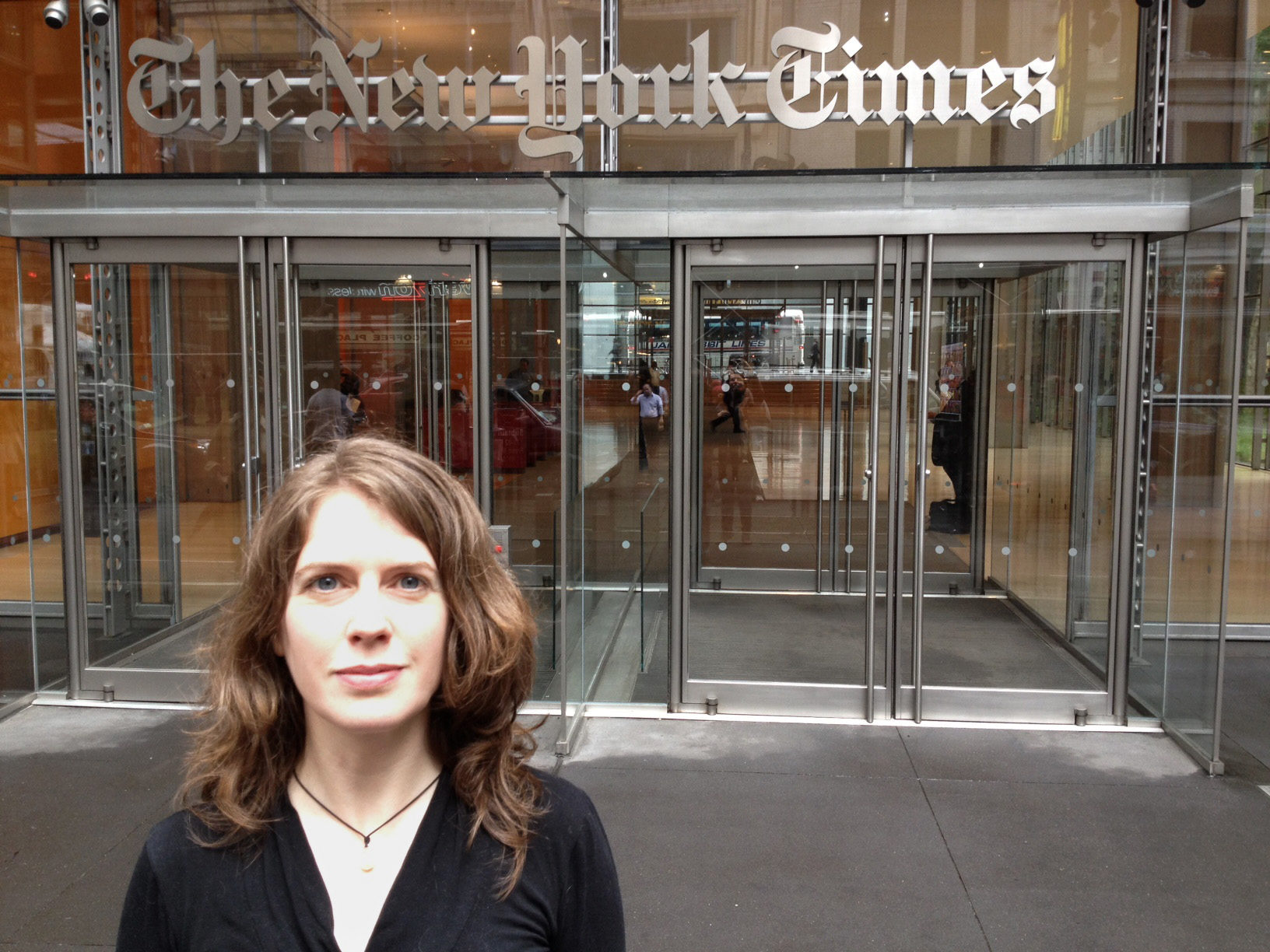This story was funded by the J-Source Patreon campaign.
By Jane Gerster
The first time Patti Sonntag tried to pitch a hands-on investigative class about resource extraction companies to Canadian journalism schools she was met with enthusiastic but noncommittal interest. It was 2014 and while schools were interested in the topic, Sonntag said, the project was an as-yet unproven idea and “I had nothing to show anybody.”
While Sonntag is an accomplished Canadian journalist, she’s worked the last 16 years in New York where she’s currently a managing editor in The New York Times’ News Services division. This makes her an odd choice, on paper at least, to lead an in-depth Canadian investigation.
But last spring Sonntag was awarded the Michener-Deacon Fellowship for Journalism Education to do exactly that. Now, a cohort of journalism students from across the country is gearing up to investigate.
The project is data-driven, collaborative, and experimental. It’s too soon to predict what the investigation will yield, but Sonntag is confident, “there is going to be something there—we’re going to have a result.”
She did a test run with journalism students at Concordia University, Sonntag’s alma mater, last winter. Her students spent four months—an amount of time almost inconceivable to many time-strapped journalists today—investigating provincial forestry.
“They learned the Quebec Forestry Ministry’s system inside and out to an extent that was a little bit nutty almost,” Sonntag said, joking her students practically earned a forestry degree alongside their journalism degrees.
There are increasingly fewer opportunities these days for journalists to dig deep into an issue. Investigative journalism is costly and time consuming, a crucial public service that often shrinks along with downsizing newsrooms.
But the importance of in-depth knowledge is part of why investigating resource extraction companies is such a passion project for Sonntag. She was born in Quebec but raised in British Columbia with family in northern Saskatchewan, in small communities where logging and mining fueled the economy. But local papers don’t seem to have the time, money or enough staff to keep close watch on the industry. She’s hoping a cross-country investigation in conjunction with the Corporate Mapping Project can help change that.
The Corporate Mapping Project (CMP), a joint effort led by the Canadian Centre for Policy Alternatives, Parkland Institute and the University of Victoria, has been using data to try to understand how money in the resource sector translates into power, influence and decision-making throughout the oil, gas and coal industries across British Columbia, Alberta and Saskatchewan.
“It’s an experiment,” acknowledges Shannon Daub, co-director of the project and associate director of the Canadian Centre for Policy Alternatives’ British Columbia office. But she foresees a potentially powerful payoff. “Its an opportunity to see some of the research that we’re doing used and informing a different kind of public engagement than what we might normally do,” Daub said.
Sonntag’s project is going to bring together CMP with roughly 26 student journalists and their advisors across the country. There are students at Concordia, the University of British Columbia, the University of Regina, and Ryerson University. Many are in the process of reading up on the material while their advisors finalize syllabi.
The appeal of the project, the advisors agree, is that it’s collaborative. “It’s the future of journalism,” said Sandra Bartlett, who will lead the cohort at UBC, where she’s currently a visiting professor. “You get more brain power in the room.”
“The benefits are innumerable,” said Robert Cribb, an investigative reporter at the Toronto Star, who will be leading the Ryerson students. Not only do students get to flex their investigative muscles, but media outlets get “access to in-depth, well researched pieces of distinctive investigative reporting.” The project dovetails nicely with Cribb’s own Michener win in 2015 to develop a project connecting journalism programs across the country to report in-depth stories critical to the public interest.
Journalism can be quite isolated, agree Bartlett and University of Regina journalism professor Trevor Grant, who will co-lead U of R student participation. “You don’t really understand the great big picture of journalism around the world, how different people are, how many different types (of journalism) and thoughts there are, so this is an awesome opportunity for that,” Grant said.
And with limited money, Bartlett said, journalists need to work together – even more so when it comes to investigative work. The downsides she sees are mostly administrative, and have to do with building trust. However, such barriers are, she believes, absolutely surmountable.
Some great investigative work has come out of collaborative journalism. Rather than rushing an important story to scoop the other, reporters at ProPublica and The Marshall Project worked together to produce An Unbelievable Story of Rape, a Pulitzer Prize-winning account of a rape victim’s encounter with the justice system More recently, journalists around the world worked together on the Panama Papers leak.
And even before stories get the green light to print, the benefits during the reporting process are immense. With people located across the country, the task of tracking down sources becomes much easier: there is someone close to knock on doors, to get court documents, to be places in person and pick up on little but telling details like a person’s body language.
“We can’t see this stuff as kind of second-tier journalism because there are students involved,” Cribb said. “With the proper oversight and management of these projects you’re talking about the potential to do even more ambitious work than what is happening now.”
Clarification, Oct. 18, 2016: The headline of this story was updated in order to avoid confusion about Sonntag’s position at the New York Times.
Update, Oct. 19, 2016: The Parkland Institute was added the list of those working on the Corporate Mapping Project.

